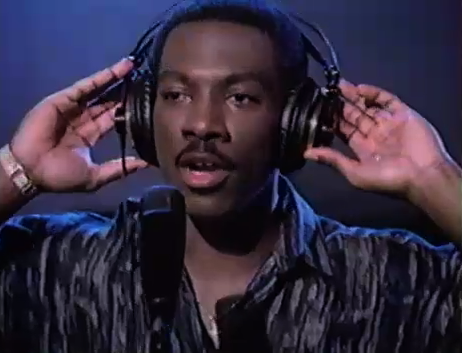The Fallacy of Fixed Meaning

“…the dogma that words come to us out of the past with proper meanings—fixed and immutable—is a fallacy. The only meanings a word has are those that the speakers of the language choose to give it.” The Oxford Essential Guide to Writing
This from Wikipedia’s entry on linguistic prescription:
In linguistics, prescription denotes normative practices on such aspects of language use as spelling, grammar, pronunciation, and syntax. It includes judgments on what usages are socially proper and politically correct. Its aims may be to establish a standard language, to teach what is perceived within a particular society to be “correct” forms of language, or to advise on effective communication. If usage preferences are conservative, prescription might (appear to) be resistant to language change; if the usage preferences are radical, prescription may produce neologisms.
Prescriptive approaches to language are often contrasted with descriptive linguistics, which observes and records how language is practiced. The basis of linguistic research is text (corpus) analysis and field studies; yet description includes each researcher’s observations of his and her (own) language usage. Despite apparent opposition, prescription and description (how language should be used, and how language is used) exist in a complementary dynamic tension of mutual linguistic support.
Again, from Kane in Oxford: “Words, then, are far from being tokens of fixed and permanent value. They are like living things, complex, many-sided, and responsive to pressures from their environment. They must be handled with care.”
I love the freedom of language, neologisms, mutability–moments that allow for creative energy. I also love grammar, rules, usages that make the reading experience universal. Maybe that’s why I write poems and edit. This is a political topic, to be sure, but it’s definitely a matter of craft as well.
Where, as a writer, do you think should be and is [of how language is used] meet?
4 lightstands, nightstands, washstands hurtling past
14. Literary profiling. The books you ‘like’ on Facebook. Do you ever go vexatious on what books populate your most obvious bookcase? Like maybe you’re having a Superbowl party at the house and what books will the visitors eyeball? Ever left a book out on your desk/table/car floor with intent? Come on, do tongue. Like Play it Again, Sam and the track and field medal. To be petty is to be human.
2. McCain aide outed as “anonymous” O author? I wonder what vice-presidential nominee he is describing here, The Barracuda:
thick hair piled up high, chin out, defiant, taunting, flaunting that whole lusty librarian thing, sweet and savory, mother and predator, alluring and dangerous…
99. Holy shit Truman Capote’s house is selling at a bargain price! Discount, discount, and with 7.5 bathrooms. Now if I can only hustle a few more chapbooks…
4. The 10 greatest child geniuses in literature. What?! Hal Incandenza only gets 2nd place? And they left off Ignatius Jacques Reilly, Dolores (AKA: Dolly, Lolita, Lola, Lo and L), and that daughter from Stories in the Worst Way. Man.
I Plan to Spend My Summer Reading This
The Devil All The Time, Donald Ray Pollock‘s debut novel. Here’s the cover:
An apolitical writer?
For the past 36 hours or so, I’ve been hooked on Al Jazeera.
Egypt. Fuck. Things are happening. Yemen. Jordan.
And yet, on writing blogs and other social networking sites, almost nothing is being said about it, at least from the writers. It leads me to think that many writers develop an apolitical stance, a focus on aesthetics as politic rather than politics as politic. Ken Baumann wrote a smart rant about electronics, which was ridiculed by some, praised by others, but what’s noteworthy is the immediate suspicion and rebuttal against his overt political message. Why is this?
Should we care about Egypt? Why? Why not? Do you see this apoliticization and what do you think causes it? Or: please prove me wrong.
If your instrument does not exist yet you build it. Then you fuck around.

This is Moondog with his Trimba, which he built himself. Moondog is a blind homeless man on the streets of New York City. It is 1953 (I think) and he dresses like a viking because vikings are rad.
“I am essentially not an instrument builder, but a composer. I am a philosophic music man who long ago was seduced into musical carpentry. As a composer and a musical philosopher I make my living by selling records of my music. I am both the manufacturer and the retailer. And I distribute the records very largely by mail.” — Harry Partch, 1958
Love will tear us apart cover

I found out from wikipedia today that Ian Curtis hung himself. Sorry I did not know this earlier. He was the singer of Joy Division, named after what Nazis called a special area designated for all the attractive Jewish girls to rape. Because I’m morbid, I often think about how bad it would feel being slowly herded towards my noose, seeing that circle from afar, that apathetic rope just hanging there. When you’re young and sad, maybe you gravitate towards Joy Division, and then in high school art class when the teacher asks you to draw something, you draw Ian Curtis. You draw it with paint or pencil, filling in your self-made lines like a coloring book, fleshing out the shading in the name of a human. And maybe when you hear “love will tear us apart” in that robotic monotone, you think of that boy or girl you really like, and how you’ll never be together, how love — that soft word oft used to describe, oddly, the pit in your chest those sacred moments they pass in the hall — has failed to tear you apart. It only punctured you. And you remember these people forever, each syllable that made up their name, until the past becomes the present in f , and each facebloat is a little bloated older, a little less mind-photoshopped as you remembered, and here we are.
Necro, Necro, Necropastoral

Hieronymus Bosch - Garden of Earthly Delights (1503)
Like Joshua Corey & others, I’m bewitched by Joyelle McSweeney’s concept of “the necropastoral.” (read her posts at Montevidayo) I fear I have little to contribute, but much to wonder about. My inclination is to assume I’m misunderstanding what she means by the term, even after reading her definition:
[the ‘necropastoral’ is] a term which denaturalizes the pastoral by focusing on its always/already unnatural qualities. In its classical form, the pastoral is a kind of membrane on the urban, an artificial, counterfeit, impossible, anachronistic version of an alternative world that is actually the urban’s double, contiguous, and thus both contaminatory and ripe for contamination, a membrane which, famously, Death (and Art) can easily traverse (Hence, Et in Arcadia Ego). [here]
But since I’ve never let misunderstanding stop me from asking questions, or engaging in conversation, I thought I would share some thoughts (more bricolage of ideas than exposition) provoked by the evocation of “the necropastoral.”
Go Ahead: It is Friday
Man don’t drink none ain’t natural.
The beloved may be treacherous, greasy-headed, and given to evil habits.
It makes me feel like I have four legs instead of two.
Like my lemonade funny.
Ridiculed, beaten, thrown into a crowd.
(ravn)
Beer has a nice bitter taste after ice cream. Next to music, beer is the best.
The theme is the theme of humiliation.
Are you a hunchback or an old cripple? Whiskey on the house!
They are the we of me.
So why add orange juice?
Listen: if you want to steal the dessert spoon just steal the dessert spoon.
Are you a lawyer, agent, or friend?
Life is good. But there are problems.
Mega congratulations to Amelia Gray on selling her third book, tentatively titled THREATS, to FSG! What you know about dat????????? Screwed up clique on the rise.
There Are Always Things On My Mind

[1]
One of the things I love most when ordering a book from Amazon.com or a subscription from one of the well-established literary magazines is I know I can trust I will receive what I ordered in a reasonable amount of time. I know I am not just throwing my money into the wind and hoping for the best. Often times, however, when I order books and magazines from smaller outfits, it feels like a real crapshoot. Maybe I will receive what I ordered, maybe I won’t. Maybe what I ordered will arrive during the timeframe promised, maybe it won’t. More often than not, it feels like I have to track down small press books and magazines I’ve ordered and if I forget I’ve ordered something, I’ve essentially donated that money with nothing but, perhaps, good karma, to show for it. I’ve contributed to several Kickstarter projects and only received what was promised by two. I don’t really care but still, if you say you’re going to do something, you should do it otherwise you really undermine yourself and lose potential customers.
At times, I feel like we eschew professionalism. We don’t use contracts. We don’t stick to timelines. We don’t send out review copies in advance. Sometimes, I think we don’t bother trying to do what the bigger presses our doing because we think we can’t. Word Riot has proven that wrong. Paula Bomer’s book, for example, was reviewed in Publisher’s Weekly and had a mention in O Magazine. We don’t communicate effectively. We don’t update our websites or we delete our archives without notifying our authors. I’m generalizing here, but these things happen all the time and it can be frustrating, as a consumer, as a writer, as an editor.




